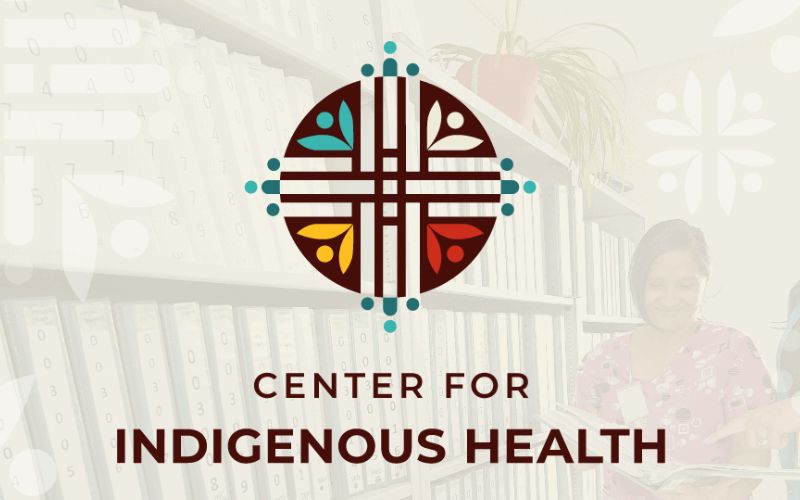
- Details
- By Kaili Berg
The Center for Indigenous Health held a graduation ceremony for seven Indigenous scholars receiving advanced degrees from the Johns Hopkins Bloomberg School of Public Health last month on May 27.
The 2023 graduates include:
- Jared Ellsworth, MPH (Navajo)
- Breanna De Leon, ScM (Apache)
- Sara Lucero, MPH (Navajo)
- Tyrone Peterson, MPH (Navajo and Pascue Yaqui)
- Natalie Joe, PhD, MPH (Navajo)
- Rene Begay, MPH (Navajo)
- Olivia Trujillo, MPH (Navajo)
Each recipient was given a handmade blanket from Snoqualmie Tribe-owned brand Eighth Generation and a Johns Hopkins frame to encase their new diploma. Family and friends of students were in attendance to celebrate the occasion and many shared stories about each of the students.
Graduate Natalie Joe is an enrolled member of the Navajo Nation and has received a Bachelor of Science in Cellular & Molecular Biology and Biochemistry from Fort Lewis College, a Ph.D. in Cellular and Molecular Medicine and a Master of Public Health from John Hopkins. Joe spoke with Native News Online about her achievement.
“I felt incredible relief, excitement, immense joy, and pride for reaching this accomplishment,” Joe said. “I did not expect that I would have two graduate degrees at this stage in my scientific career.
As an Indigenous woman that holds a higher education degree, I truly hope that my path has solidified and created more pathways for other students that come after me because I am only where I am in part due to the brilliant individuals from historically marginalized communities that created this path for me and the allies that created space within graduate education.”
Throughout Joe’s academic journey, she has been driven to study cancer research by how the disease has affected her family and community. She is now working on-site at the National Cancer Institute in Bethesda, Md., to continue her post-doctoral fellowship and continue training as a researcher. She is a first-generation college graduate and the first person in her family to get a Ph.D.
“My family has shown immense support and expressed their pride for my accomplishments,” Joe said. “I could not have done each step along my career without their support, guidance, investment, cheering, and time.”
“I am forever grateful to them … I am also proud to say that I am no longer the only PhD in my family and other family members have received their MPHs. I believe that my journey is a way to show my family members and community that this is a possible pathway if they are interested in STEM, and that anyone can take similar steps to achieve this.”
The Center for Indigenous Health supports current and future Indigenous health professionals in their educational and professional development. The center is based at the Johns Hopkins School of Public Health and has awarded more than 2,000 scholarships to Indigenous students across various programs.
More Stories Like This
American Indian College Fund Announces Spring 2026 Faculty Fellow CohortNavajo Nation Signs $19 Million Diné Higher Education Grant Fund Act into Law
Dr. Shelly C. Lowe to Be Inaugurated as IAIA President March 26–27
Tlingit Language Courses Expand for Students to Learn With Families At-Home
American Education Has Failed Its First People, But Hope Is On The Horizon
Help us defend tribal sovereignty.
At Native News Online, our mission is rooted in telling the stories that strengthen sovereignty and uplift Indigenous voices — not just at year’s end, but every single day.
Because of your generosity last year, we were able to keep our reporters on the ground in tribal communities, at national gatherings and in the halls of Congress — covering the issues that matter most to Indian Country: sovereignty, culture, education, health and economic opportunity.
That support sustained us through a tough year in 2025. Now, as we look to the year ahead, we need your help right now to ensure warrior journalism remains strong — reporting that defends tribal sovereignty, amplifies Native truth, and holds power accountable.
 The stakes couldn't be higher. Your support keeps Native voices heard, Native stories told and Native sovereignty defended.
The stakes couldn't be higher. Your support keeps Native voices heard, Native stories told and Native sovereignty defended.
Stand with Warrior Journalism today.
Levi Rickert (Potawatomi), Editor & Publisher


